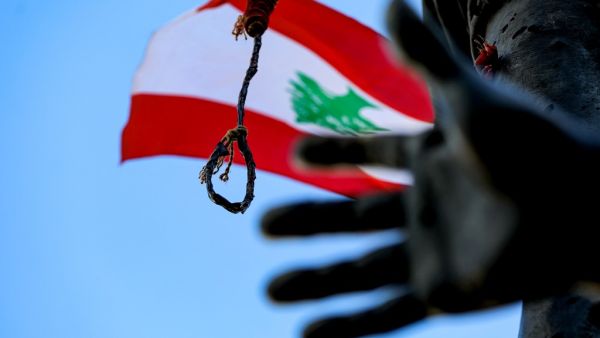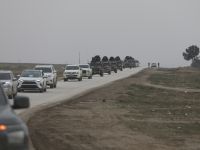After the devastation caused by the Aug 4. explosion, Tamanna, a Lebanese NGO founded with a mission to grant wishes to critically ill children, readapted their cause to focus on rebuilding the damaged properties of Beirut.
In the last two months, Tamanna, alongside many other NGOs, have been repairing and refurbishing homes and businesses in the capital in the absence of official state action. An operation was prepared: cataloguing the city into damage zones and orchestrating a coalition of local NGOs to begin restoration.
The catastrophic blast caused by 2,750 tons of ammonium nitrate exploding resulted in the displacement of 300,000 residents, at least 190 deaths, thousands wounded and annihilated half of the capital. In Greater Beirut alone, 67 percent of businesses were affected. Of these, 100 percent of businesses in the districts of Ashrafieh, Gemmayzeh, Mar Mikhael and Saifi were impacted, according to numbers from the Syndicate of Owners of Restaurants, Cafes, Nightclubs and Patisseries.
From repainting, to installing new windows and doors, to sourcing furniture and electrical items, Tamanna found itself in new territory. Talking to The Daily Star, Soraya Barbir, the NGO’s executive director, spoke about the advantage of being a small organization, unlike large corporations that are hampered by bureaucratic processes. “We were able to pick up the hammer and just start working,” Barbir explained.
Tamanna sought out international donations to begin work on damaged property, but Barbir said they have yet to receive any. “We heard that donations of glass were coming in, and wood and aluminum, from other countries” Barbir said. Egypt and the UAE have reportedly contributed, but Barbir said “we did not see anything from anyone.”
The NGO turned to local suppliers and private initiatives for help. One Lebanese company donated enough glass for five homes. Tamanna has also made it a priority to hire Lebanese workers in an attempt to help the population through the economic crisis. “Even our painters, we chose retired painters to help as it is a way for them to make money. We made a point to get a Lebanese workforce” Barbir said.
Despite the surge in demand for materials such as glass and aluminium, local suppliers have been considerate. Barbir’s team has found material at a reasonable cost, despite inflation and high demand. After the exterior of a house is refurbished, Tamanna also focuses on the interior.
The organization has had to collaborate with other local NGOs for help in this department. Tamanna partnered with Min Beib La Beib, which recycles furniture, to help furnish apartments. Thanks to the generosity of Lebanese and international donors, Min Beib La Bieb were inundated with a supply of furniture that exceeded the demand.
Speaking to The Daily Star, Lana al-Solh, head of Min Beib La Bieb, said that she comes in to assess the interior of a home “after roof, door and window” are fixed. Sometimes, an interior designer is involved in the process to make thoughtful touches, like matching the color of bed sheets to the walls. This partnership of NGOs and distribution of the repair process has been paramount to enabling homes to be fully restored.
But the process has not come without its challenges. In the aftermath of the blast, NGOs in the city and needs assessments were disorganized. Some residents reportedly received double the amount of new windows needed as organizations quickly sought to fix surroundings with little communication among themselves. Making matters more problematic, the Lebanese Army, also allegedly began trying to stop NGOs from entering properties.
The state also attempted to interfere, according to former MP and president of Dafa campaign Paula Yacoubian. She told The Daily Star that the Lebanese government attempted to muddy the reputation of NGOs after people started donating to local organizations directly. “The state was so angry that people wanted to help the NGOs directly and not the government,” she said. Yacoubian conceded, “Maybe some NGOs are corrupt,” but concluded “nothing as corrupt as the establishment in Lebanon.”
There has been no official government response to the catastrophe nor any state aid, as the country also grapples with a pandemic and the worst economic crisis since the Civil War. This has undoubtedly caused problems for NGOs both in terms of their fundraising and purchasing power.
Barbir said it has been difficult with money stuck in Lebanese banks. Tamanna managed to overcome this by opening up "fresh money" bank accounts to receive valuable "fresh" dollars from donors, often international. But even then, the whole problem was not solved: “Everyone wants cash in hand” Barbir disclosed, “but I insist in paying Lebanese labor in Lebanese pounds so that we can make our fresh dollars go as far as possible.”
At Yacoubian’s Dafa campaign, they avoid dealing with money by receiving in-kind donations. In the organization’s warehouse, mountains of donated clothes, food, furniture and medicine is sent to a growing list of families. A small team of volunteers sift through boxes of donations; categorize them by age and gender into individual bags, day in, day out. Like Tamanna, Dafa also began gathering furniture and electrical items to distribute in the wake of the explosion.
The generosity of donors and international support made it possible for many destroyed homes to be restored. Dafa was sent four thousand mattresses from donors in Lebanon, and internationally from countries such as the UK and Malta. Companies including Whirlpool, which sells home appliances, and Kitwood, a kitchen manufacturer, also gifted hundreds of items.
But can Beirut really be rebuilt by NGOs alone? “No, we cannot rebuild everything with NGOs, we cannot rebuild the port. There are huge projects beyond our capacity” Yacoubian said. She expressed her hope for a functioning government. “I don’t know who trusts those people [politicians],” she said. However, Yacoubian believes the government’s involvement in rebuilding the city is achievable, citing the three-month restoration of Beirut’s heavily damaged suburbs after the 2006 war with Israel as an example.
For the victims of the deadly blast, the rapid response and hard work from NGOs has given hope and relief to a ransacked community. Despite the progress that has been achieved, Solh spoke about the amount of work continuing to grow, and added: “Our road is very long for Lebanese people to wake up and have a normal situation. It is a tragedy.”
This article has been adapted from its original source.








